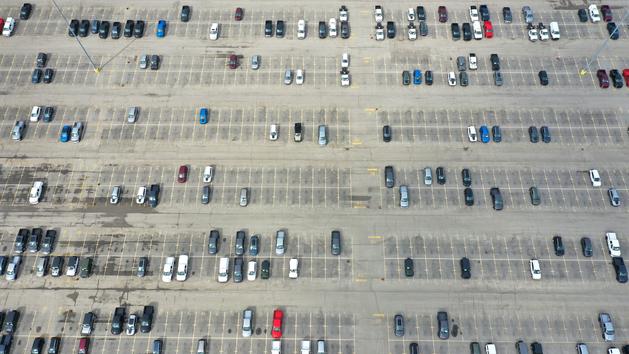Old, polluting and dangerous: used cars exported by the millions represent a threat to developing countries for lack of sufficient standards, according to an unpublished report published on Monday by the United Nations Environment Program (UNEP).
Read also: The Citizen's Convention for the Climate challenges Emmanuel Macron
European countries, which represent more than half of world exports (three million passenger cars a year in total, between 2015 and 2018), send their old cars, particularly to the East, but also to Nigeria and Libya.
Japan sends them to the Middle East and Southern Africa, and the United States to Mexico and the United Arab Emirates.
In the port of Amsterdam, during an inspection by the Dutch authorities at the end of 2019, the average age of waiting vehicles was 18 years.
93% were Euro 3 standards, or lower.
Some of the vehicles were out of service, some had their catalytic converters sawed off.
"
It's not a pretty sight,
" Rob de Jong, who heads the UNEP Sustainable Mobility Unit, said at a press conference.
"
Most of these vehicles are very old, polluting, inefficient and dangerous
."
While the number of vehicles could at least double by 2050, to reach two billion units on the planet, it is urgent to better regulate these exports, warns UNEP.
Especially since China, which banned second-hand exports until 2019, could very quickly become a major player in this market.
Two-thirds of the 146 states surveyed by UNEP have “
weak
” or “
very weak
”
rules
for importing vehicles.
The Democratic Republic of the Congo imposes an age limit of 20 years and no rule in terms of polluting gas emissions.
Georgia only taxes them according to their engine capacity and has one of the oldest fleets in the world.
Read also: Tesla promises an electric car at $ 25,000 in 3 years
On the contrary, around 40 countries have imposed stricter rules on their imports.
Sri Lanka, for example, imposes an age limit of three years and supports the import of electric vehicles, the second-hand supply of which is set to increase.
"
Making the global fleet cleaner is a priority to achieve our climate and air quality goals
," said Inger Andersen, who heads UNEP, in a statement.
"
Developed countries must stop exporting vehicles that fail safety and pollution tests (...) Importing countries should adopt more stringent quality standards
."




/cloudfront-eu-central-1.images.arcpublishing.com/prisa/GJCBMBH57MQHVYCI4ZPKB6IKRI.jpg)




